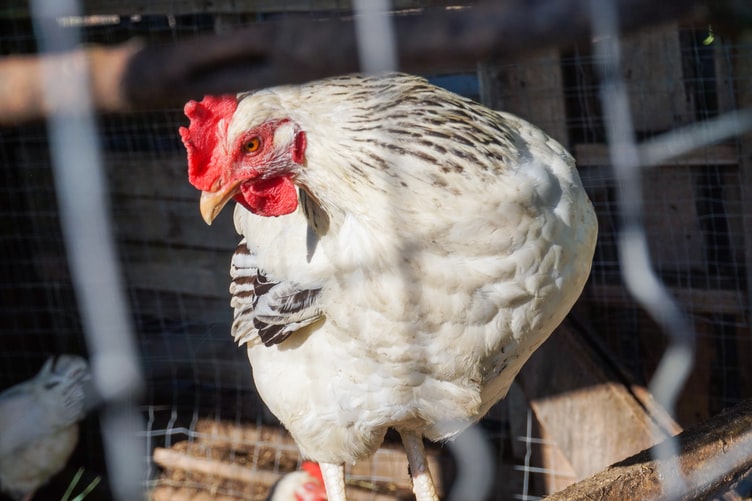Antibiotic use as growth promoters on poultry farms has been banned in European organic farms based on EC Council Regulation No. 1804/99, whereas in Indonesia it has been regulated through Minister of Agriculture Regulation No. 14 of 2017 concerning Classification of Animal Medicines.
The regulation is one of the government’s strategic steps in controlling the threat of antimicrobial resistance. The limited use of antibiotics has sparked a lot of research to find other additives that can be used as alternatives to antibiotic growth promoters.
Material feed additives that can replace the function of antibiotic growth promoters in poultry farm include probiotics. The probiotic supplementation contains beneficial bacteria, Lactobacillus sp and Bifidobacterium sp.
Both bacteria have a positive effect on microbial populations in the intestinal tract and improve the condition of the digestive tract. Research on the use of probiotics as alternative antibiotic growth promoters is still very limited and needs to be improved. So high production yields are obtained and can be widely applied so it could provide a positive economic impact in the poultry industry.
Novelty of this study is to prove that local isolate probiotic supplements derived from the digestive tract of chickens, Bifidobacterium sp and Lactobacillus casei affect the growth performance. It was also for a business analysis on laying hens.
Method and Results
This research uses complete randomized factorial design. The first factor is the time of administration (1, 2, 3, and four weeks). The second factor is the use of probiotics (control without probiotics, 0.1 percent AGP and 0.5 percent Bifidobacterium sp + 0.25 percent L.casei. Laying hens ( Lohmann strain ), age 30 weeks totaling 180 heads divided into 4 × 3 treatments, each group consisted of five replications, and each test consisted of three replications.
The antibiotic growth promoters (AGP) were administered through the feed, which is 0.1 percent AGP mixed and stirred evenly in the feed. There was about 0.5 percent of Bifidobacterium sp + 0.25 percent of L. casei (each concentration was 1.2 x 10 8CFU / ml) was mixed with 7.5 ml/liter of water (free of chlorine and other disinfectants). The probiotic solution was sprayed evenly into 1 kg of feed ration, and then the feed ration is dried and ready to be given.
A good feed intake was shown in the administration of 0.5 percent Bifidobacterium sp + 0.25 percent L.casei in chicken layers. The increase in feed intake in the administration of probiotics is due to an increase in the process of digestion, absorption, and availability of nutrients which has a positive effect on intestine activity and increased digestive enzymes.
The highest weight yield was found in the administration of 0.5 percent Bifidobacterium + 0.25 percent L. casei, while the lowest weight in the control group without the use of AGP and probiotics in the first week to the fourth week. The best feed conversion ratio is in the treatment using a combination of 0.5 percent Bifidobacterium + 0.25 percent L.casei Bifidobacterium and L. casei in the third and fourth week.
The highest hen day production was in the treatment of using 0.5 percent Bifidobacterium sp + 0.25 percent L.casei in the third and fourth week, amounting to 86.66 percent. Meanwhile, the lowest Hen day production results were in the control treatment without the use of antibiotic growth promoters (AGP) and probiotics with 73.09 percent HDP.
The addition of AGP in the feed helps to reduce the number of intestinal microflora and suppress the growth of pathogenic bacteria in the digestive tract. However, the use of AGP needs to be considered because it brings a negative impact. Excessive use will cause residues from antibiotics that can be detected in poultry products such as meat, eggs, and milk.
The presence of antibiotic residues will be dangerous for consumers who consume them. The use of a combination of 0.5 percent isolates Bifidobacterium sp + 0.25 percent L.casei showed the highest egg production results. Probiotics produce acids, so it creates an acidic atmosphere in the digestive tract to suppress the growth of pathogenic bacteria. A good condition of the digestive tract can help improve the metabolic process and the absorption process of nutrients needed by the body.
Based on the results of the study, it can be concluded that the addition of 0.5 percent probiotic Bifidobacterium sp + 0.25 percent L. casei can be used as a substitute for antibiotic growth promoters. The use of probiotics can reduce feed intake and feed conversion ratio, and they can increase egg weight, feed efficiency, hen day production of laying hens.
Author: Dr. Widya Paramita Lokapirnasari, drh.,MP
Full article available at:
Potency of probiotics Bifidobacterium spp. and Lactobacillus casei to improve growth performance and business analysis in organic laying hens









